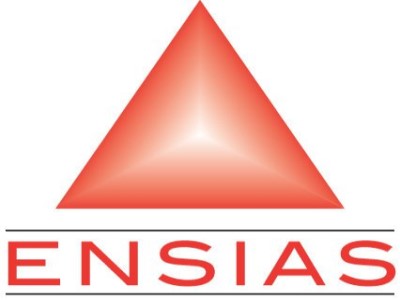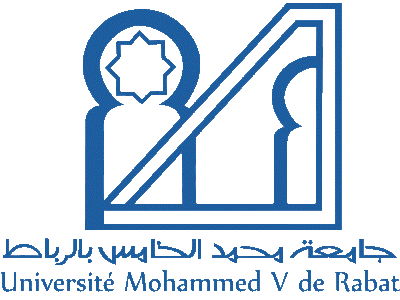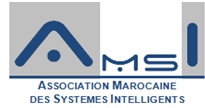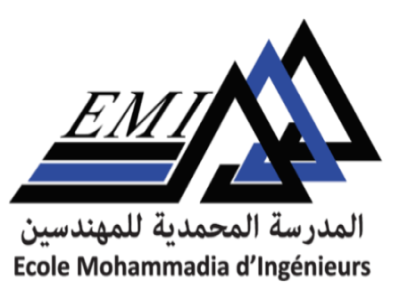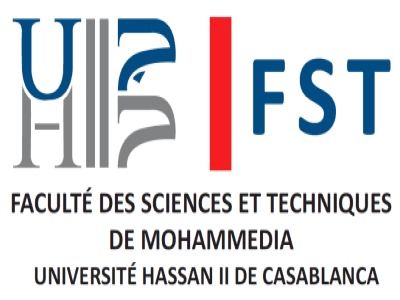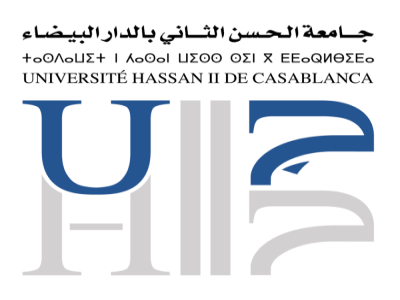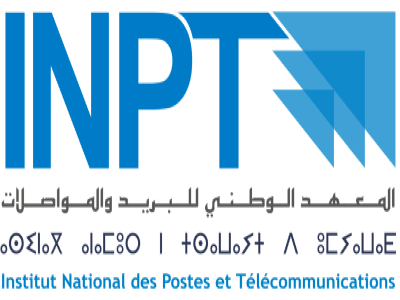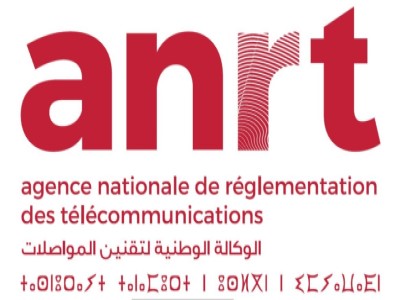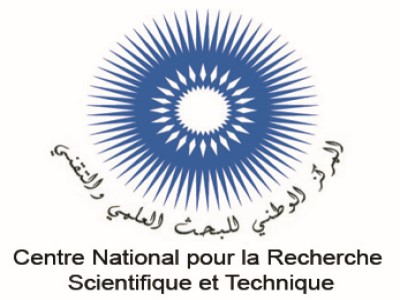ABBASS Wissam (INSA Marrakech, Morocco)
ABNANE Ibtissam (ENSIAS-Rabat, Morocco)
ABRAN Alain (ETS-Montreal- Canada)
ADAMS Niall (Imperial College London- UK)
ADITAYA Jain (University of Nottingham- UK)
AJALLOUDA Lahbib (Fac Poly-Smara, Morocco)
AJARROUD OUAFAE (EMI-Rabat, Morocco)
AIT SKOURT Brahim (ENSIAS-Rabat, Morocco)
ALLAERT Benjamin (IMT Nord Europe, France)
ALEMAN Jose Luis Fernandez (University of Murcia-Murcia- Spain)
AL-SAREM Mohamed (UniversityTaibah-Medina, KSA)
AMAZAL Fatima Azzahra (FS-Agadir, Morocco)
ANOUN Houda (Estc, Hassan II university, Morocco)
ANTER Samir (FST-Mohammedia, Morocco)
ANWAR Adil (EMI-Rabat, Morocco)
AZIZI Mostafa (EST-University Med 1st-Oujda, Morocco)
BAH Slimane (EMI-Rabat, Morocco)
BAHANI Khalid (FST-Mohammedia, Morocco)
BAHASSINE Said (ENSAM-Casablanca, Morocco)
BAINA Amine (INPT-Rabat, Morocco)
BAKKOURY Zohra (EMI-Rabat, Morocco)
BAKRAOUY Zineb (ENIAD Berkane, Morocco)
BARKA Hafid (INPT-Rabat, Morocco)
BEKKHOUCHA Abdelkrim (FST-Mohammedia , Morocco)
BELLAFKIH Mostafa (INPT-Rabat, Morocco)
BELMEKKI Abdelhamid (INPT-Rabat, Morocco)
BELMEKKI Elmostafa (INPT-Rabat, Morocco)
BELOUADHA Fatima Zahra (EMI-Rabat, Morocco)
BEN MAISSA Yann (INPT-Rabat, Morocco)
BEN MAMOUN Mouad (FS-Rabat, Morocco)
BENABBES Khalid (ENS-Meknes, Morocco)
BENABBOU Loubna (UQAR, Canada)
BENABOUD Hafssa (FS-Rabat, Morocco)
BENAINI Redouane (FS-Rabat, Morocco)
BENHLIMA Laila (EMI-Rabat, Morocco)
BENLAHMAR El Habib (FSAC-Casablanca, Morocco)
BENKHALIFA Mohamed (FS-Rabat, Morocco)
BENSAID Hicham (INPT-Rabat, Morocco)
BENSLIMANE Abderrahim (University of Avignon, France)
BERQUEDICH Mouna (UM6P, Morocco)
BERGUIG Youssra (FST-Mohammedia, Morocco)
BERRADO AbdelAziz (EMI-Rabat, Morocco)
BERRICH Jamal (ENSA-Oujda, Morocco)
BESSATE, ABDELMAJID (FP-Sidi Bennour, Morocco)
BINDAL Akanksha (Delhi Technological University, India)
BITAR Abdelkader (IEA-UM5, Morocco)
BORGI Amel (ISI University of Tunis El Manar, Tunisia)
BOU NASSIF Ali (Sharjah University, UAE)
BOUCHENTOUF Toumi (ENSAO-Oujda, Morocco)
BOUCHON-MEUNIER Bernadette (CNRS LIP6-Paris, France)
BOULMAF Mohammed (UIR- Rabat, Morocco)
BOUMHIDI Ismail (FS DM-FES, Morocco)
BOUZOUBAA Karim (EMI-Rabat, Morocco)
CARRILLO DE GEA Juan Manuel (University of Murcia-Murcia, Spain)
CHAIRI Ikram (UM6P, Morocco)
CHANTIT Salima (FST-Mohammedia, Morocco)
CHAOUNI BENABDELLAH Naoual (ENSIAS-Rabat, Morocco)
CHEIKHI Laila (ENSIAS-Rabat, Morocco)
CHEN Shuwei (University of Ulster-Coleraine- UK)
CHERIF Walid (ESI-Rabat, Morocco)
CHIHI Inès (FSTM, Luxembourg)
CHIKHAOUI Mohamed (IAV-Rabat, Morocco)
CHORFI Zoubida (EMI-Rabat, Morocco)
DAGDOUGUI Hanane (Polytechnique Montréal, Canada)
DAOUDI Mohamed (IMT Lille-Douai, France)
DAOUDI NAJIMA (ESI-Rabat, Morocco)
DELGADO Tatiana (CUJAE-Havana, CUBA)
DOUMI Karim (FSJESR-Agdal, Morocco)
DOUZI Khadija (FST-Mohammedia, Morocco)
DSSOULI Rachida (University of Concordia-Montreal, Canada)
EL ALLIOUI Youssouf (FP khouribga, Morocco)
EL AMRANI Younès (FS-Rabat, Morocco)
EL BAJTA Manal (INSEA-Rabat, Morocco)
EL BEGGAR Omar (FST-Mohammedia, Morocco)
EL FADDOULI Nour-Eddine (EMI-Rabat, Morocco)
EL GHAZI Asmae (FSR-Rabat, Morocco)
EL GHAZI Hassan (INPT-Rabat, Morocco)
EL HASSAN Abelwahed (FSS-UCAM, Morocco)
EL KHADIMI Ahmed (INPT-Rabat, Morocco)
EL YAZIDI Moulay Hafid (ENSIAS-Rabat, Morocco)
ET-TOLBA Mohammed (INPT-Rabat, Morocco)
ELBAQQALI Omar (FS DM-FES- Morocco)
ELBOUZIRI Adil (FST-Mohammedia, Morocco)
ELHACHEMI Nizar (EMI-Rabat, Morocco)
ELMZABI AMAL (FSEJ- UH2M, Morocco)
ELOUATAOUI Widad (ENSIAS-Rabat, Morocco)
EN-NAIMANI Zakariae (ENSET-Mohammedia, Morocco)
ERRAIS Mohammed Amine (FSAC-Casablanca, Morocco)
FALIH Noureddine (FP BéniMellal, Morocco)
FRINI Anissa (UQAR Québec- Canada)
FARSAL Wissal (FST-Mohammedia, Morocco)
HADDI Adil (ENSA-Berrachid, Morocco)
HAMLICH Mohamed (ENSAM-CASABLANCA, Morocco)
HASBI Abderrahim (EMI-Rabat, Morocco)
HOUSNI Khalid (FS Kénitra, Morocco)
HOSNI Mohammed (ENSAM-Meknes, Morocco)
HSSINA Badr (FST-Mohammedia, Morocco)
IDRI Ali (ENSIAS-Rabat, Morocco)
IDRISSI Nouhaila (FS-El Jadida, Morocco)
IDRISSI ZOUGGARI Nadia (University Mohammed V, Morocco)
JABRANE Younes (ENSA-University Caddi Ayad, Morocco)
KABBAJ Mohammed Issam (EMI-Rabat, Morocco)
KAMAL IDRISSI Hamza (INPT-Rabat, Morocco)
KANDOUSSI El Mehdi (INPT-Rabat, Morocco)
KARKOUR ELMIAD Aissa (FS-Oujda, Morocco)
KHALIDI IDRISSI Mohammed (EMI-Rabat, Morocco)
KHOSHGOFTAAR Taghi (FAU-Florida- USA)
KHOUMSI Ahmed (U. Sherbrooke CANADA)
KOUISS Khalid (INP Clermont-Auvergne, France)
KISSI Mohamed (FST-Mohammedia, Morocco)
KRATZ Frederic (INSA Centre Val de Loire-Bourges- France)
LAHBY Mohammed (ENS-Casablanca, Morocco)
LAHSEN-CHERIF Iyad (INPT-Rabat, Morocco)
LBATH Ahmed (Université Grenoble-Alpes, France)
LESOT Marie Jeanne (LIP6-Paris, France)
LETRACHE Khadija (FST-Mohammedia ,Morocco)
LIU Jun (University of Ulster-Coleraine- UK)
LOUNIS Hakim (UQAM-Montreal- Canada)
MADANI Adellah (FS-El Jadida, Morocco)
MAHMOUDI Abdelhak (ENS-UM5-Rabat, Morocco)
MALKI Zouhair (IVAD, Canada)
MANDAR Meriem (ENS-Casablanca, Morocco)
MARSALA Christophe (LIP6-Paris, France)
MARTINEZ LOPEZ Luis (University of Jaen-Jaen, Spain)
MEDDAHI Ahmed (IMT Nord Europe, France)
MEZRIOUI Abdellatif (INPT-Rabat, Morocco)
MINKU Leandro (University of Leicester- UK)
MOUJABBIR Mohammed (FP khouribga, Morocco)
MOUMANE Karima (ENSIAS-Rabat, Morocco)
Hicham Mouncif (Faculty Polydisciplinary, Sultan Moulay Slimane University, Morocco)
MOUSSAOUI Omar (University Med 1st Oujda, Morocco)
NAFAOUI El habib (FS DM-Fes, Morocco)
NAFIL Khalid (ENSIAS-Rabat, Morocco)
NAJI Abdelwahab (ENSA-Oujda, Morocco)
NAJID Abdellah (INPT-Rabat, Morocco)
NKAMBOU Roger (UQAM-Montreal, Canada)
NOUR EL FATH Mustapha (University Laval-Laval, Canada)
OUARDI Faissal (FS-Rabat, Morocco)
OUASSIT Youssef (FSAC-Casablanca, Morocco)
PARK You-Jin (University of Technology, Taipei, Taiwan)
RACHAD Taoufik (ENSIAS-Rabat, Morocco)
RACHIDI Tajje-Eddine (AUI-IFRANE, Morocco)
RADOUANE Mohamed (ENSIAS-Rabat, Morocco)
RAHMANI Ahmed (Ecole Centrale, LILLE, France)
RAOUYANE Brahim (FSAC-Casablanca, Morocco)
RASSAM Latifa (ENSIAS-Rabat, Morocco)
RETBI Asmae (EMI-Rabat, Morocco)
RIFQI Maria (LIP6-Paris, France)
ROBERT Serge (UQAM-Montreal, Canada)
ROS JOAQUIN Nicolas (University of Murcia-Murcia, Spain)
SABBAR Wafae (FSJES-Casablanca, Morocco)
SADDOUNE Mohammed (FST-Mohammedia, Morocco)
SARANSH Arora (University of Washington, USA)
SARDI Lamyae (FS-Rabat, Morocco)
SAYAGH Mohammed (ETS-Montreal, Canada)
SBAI Hanae (FST-Mohammedia, Morocco)
SBAI Oussama (FS-Rabat, Morocco)
SELLAMI Asma (University of Sfax-Sfax, Tunisia)
SONDI Patrick (IMT Nord Europe, France)
SOUIDI El Mamoun (FS-Rabat, Morocco)
TAMTAOUI Ahmed (INPT-Rabat, Morocco)
TESTIK Murat Caner (Hacettepe University, Turkey)
TOVAL Ambrosio (University of Murcia-Murcia, Spain)
VENTURA SOTO Sebastiýn (University of Cýrdoba-Cýrdoba, Spain)
WANG Hui (Queen’s University Belfast, Northern Ireland)
YOUSFI Abdellah (FSEJ-UM5-Rabat, Morocco)
YOUSSFI Mohamed (ENSET-Mohammedia, Morocco)
ZAHOUR Omar (FSAC-Casablanca, Morocco)
ZAKRANI Abdelali (ENSAM-Casablanca, Morocco)
ZEITOUNI Karine (UVSQ-Versailles, France)
ZELLOU Ahmed (ENSIAS-Rabat, Morocco)
ZEROUAOUI Hasnae (UM6P, Morocco)
ZINE-DINE Khalid (FS-Rabat, Morocco)
ZITI Soumia (FS-Rabat, Morocco)






